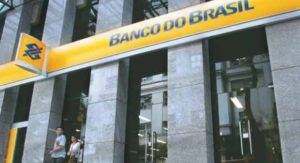Banks in Brazil are strong and efficient and are not subject to the vagaries of the economic disasters. An overview:
 Brazil is known to have an extremely efficient banking system. Most of the banks have launched digital banking while the branches span across the country, present in almost all the cities and towns. There are 15,000 branches of the top five banks. The top banks also have substantial international operations and all the banks have correspondent banking arrangements around the world. Three of the country’s top banks – Banco do Brasil, Caixa Economica Federal and the Brazilian Development Bank, or BNDES – are owned by the government. Of the top banks operating in the country, five are Brazilian (Bradesco, Itau-Unibanco, Votorantim, Safra and BTG Pactual), one, Banco Santander, is from Spain and there are also HSBC Brasil and Citibank Brasil.
Brazil is known to have an extremely efficient banking system. Most of the banks have launched digital banking while the branches span across the country, present in almost all the cities and towns. There are 15,000 branches of the top five banks. The top banks also have substantial international operations and all the banks have correspondent banking arrangements around the world. Three of the country’s top banks – Banco do Brasil, Caixa Economica Federal and the Brazilian Development Bank, or BNDES – are owned by the government. Of the top banks operating in the country, five are Brazilian (Bradesco, Itau-Unibanco, Votorantim, Safra and BTG Pactual), one, Banco Santander, is from Spain and there are also HSBC Brasil and Citibank Brasil.
The central bank of the country has described the banking sector as strong, diversified and adequately capitalized. The high levels of capitalization and modern corporate governance have enabled the sector to weather the recent global credit crunch.
ALL BANKING SERVICES
The banks in the country offer practically all the banking services. Financial services are also offered by non-deposit taking financial institutions in the country – like lease finance, funding saving, loans and factoring. There are also investment funds in the country, which are now allowed to invest in overseas investment funds. In addition, there is a program in the country that offers low-cost financing to small and medium-sized businesses, export financing and rural credit.
MARKET CONCENTRATION
According to a central bank report, the four top banks – Banco do Brasil, Caixa, Bradesco and Itau – control more than 70% of the assets. This has been possible because of consolidation in the sector. They also have 75% of the bank branches and 80% of the country’s credit. This market concentration, many banking experts and economists feel, is detrimental to consumers. The few at the top will be able to control and decide on issues like interest rates. When clients do not have many options, they become more vulnerable to inefficient and expensive services. There is also another issue, which is the risk of collapse of the whole system. In fact, a central bank’s committee had warned about the prospects way back in 2009 stating when only a few players control that much of the market, the collapse of a single institution can trigger a domino effect.
Click here for online subscription to read all the articles in full







